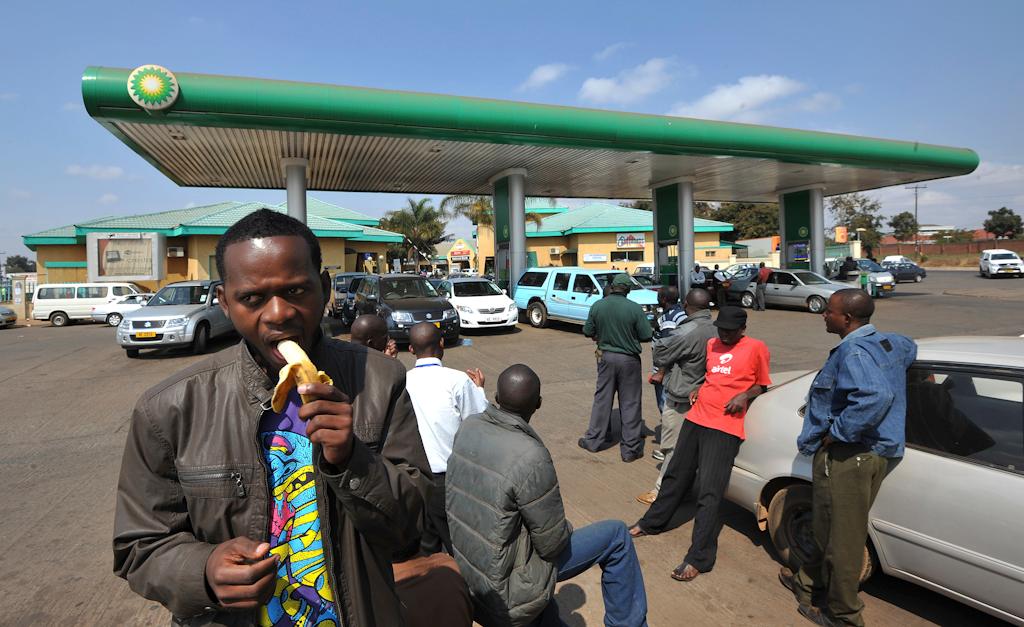Riots in Malawi as protesters call for Mutharika to step down
Malawians have lunch outside a petrol station where cars await fuel, in Lilongwe, on July 14, 2011. The United Kingdom has cut direct aid to Malawi as relations worsen following a diplomatic spat earlier this year in which each country expelled the other’s envoy. Last year, the UK gave $30 million in budgetary support to Malawi. Fearing aid cuts, Malawi recently passed an austerity budget which did not include any foreign assistance. However, the UK is continuing to give Malawi other aid – which does not go through the government – worth about $145 million over the next year. The International Monetary Fund (IMF) has also cut aid to Malawi, which used to rely on donors for 40 percent of its budget.
Riots erupted in Malawi on Wednesday after security forces tried to halt protests against the governance of President Bingu wa Mutharika. Police said one person was killed and several others injured in the violence.
The demonstrators say they are protesting against fuel and foreign exchange reserve shortages in Malawi, and worsening governance by Mutharika.
(More from GlobalPost in Malawi: Maternal death stalks Malawi’s rural poor)
Troops were deployed in the southern African country’s commercial capital, Blantyre, and police fired tear gas at protesters who had gathered outside the stock exchange in defiance of a court order banning protests in Malawi, according to Reuters.
In Malawi’s capital, Lilongwe, protesters burnt cars, offices and shops belonging to politicians from Mutharika's ruling Democratic Progressive Party and their allies, Reuters says. In the northern city of Mzuzu, demonstrators ransacked the DPP’s offices.
A police spokeswoman told the Associated Press that one person had died and several others, including police officers, had been injured, but could not confirm the details.
"The situation is very bad here," Malawi Human Rights Commission spokesman Mike Chipalasa told Agence France-Presse. "There have been running battles between the police and demonstrators.”
Malawi is a landlocked nation sandwiched between Zambia, Mozambique and Tanzania, and is heavily reliant on foreign aid. The country relies on handouts for 40 percent of its budget.
Mutharika, a former World Bank economist, was first elected in 2004, but recently has been embroiled in a diplomatic spat with Britain, Malawi’s biggest aid donor, over a leaked embassy cable that referred to him as "autocratic and intolerant of criticism.”
Mutharika's recent policies have included a ban on publications deemed "contrary to the public interest,” AFP says.
Malawi ejected Britain’s ambassador in Lilongwe over the leaked cable, and in response Britain kicked out Malawi’s representative in London and suspended aid worth $550 million over the next four years, Reuters says.
We want to hear your feedback so we can keep improving our website, theworld.org. Please fill out this quick survey and let us know your thoughts (your answers will be anonymous). Thanks for your time!
